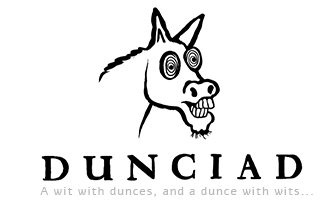
The worst part about writing anything based in the “real world” is when I get something wrong.
I feel terrible when it happens, even though I also realise it’s an occupational hazard. I know I can’t stop my prejudices from informing my writing. That’s true of all writers and it would be foolish to think otherwise. Yet I do like to quote facts.
Yet the problem with facts is that they often rely on other people establishing their credentials. If it’s sunny in Devon today, I can’t prove it myself unless I drive to Devon. I need somebody to tell me what it’s like in Devon and I need to be sure I can believe them. That’s not as easy as it sounds.
So, for example, I wrote a piece for Reaction yesterday quoting a story from The New York Times, about a COVID party in Texas. The story had also appeared in The Guardian, The Telegraph, The Daily Express… Need I go on? The story is repeated everywhere and for good reason. It speaks to the very real problem America is having with people not believing/understanding the danger posed by the coronavirus. I should also add that it wasn’t the only story of COVID parties in the past week. There was another sad story of a 17-year-old girl who had died after contracting the disease after her mother took her to a similar gathering at her church.
Yet it now appears that The New York Times story might not be all that it appeared to be. They’ve since modified their article, admitting the story is unsourced, meaning that everybody quoting them might have been repeating a lie. The Guardian, The Telegraph, The Daily Express, and, of course, yours truly…
There are two ways to avoid this problem. You write about nothing that you haven’t witnessed yourself or you write nothing. Since neither is possible, you have to adopt a third method, which is the method we’re all taught at university: use only reputable sources.
This is why journalism (or whatever branch of commentary I’m involved in) works no different to academia (and before that the church) in that no two sources are equal. A paper of record is worth a lot more than a local paper, though that even throws us questions. Shouldn’t the reverse be true? If my local St Helens Star reports that a chimney fell down on St Helens, then I should believe it more than if The Times reported it given that the latter is based in London?
In other words: no two sources are equal and even their value is relative to what’s being reported.
Anyway, I’ve had to write a footnote to my article of yesterday but it’s all very sobering to remember that we shouldn’t believe anything we read. It’s not that I think any less of The New York Times or any of the newspapers that reported the fact. What saddens me is that it’s another mistake that will be grabbed by those with darker agendas to push. Certainly, it could be argued that the press should take more care but, in the UK in particular, the politicisation of the media seems to have thrown all notion of objectivity out of the window. Objectivity is an ideal. It’s rarely ever a reality. Yet part of the Putin playbook is to sew distrust about the free press. The moment we abandon the notion of some objective truth (however notional that might be), we accept something far worse in the form of the subjective truth.
And it still leaves me feeling bad today, thinking that I might have contributed, in whatever small way, towards this descent into epistemological chaos. I care about the truth, which makes me want to just shut my big dumb mouth. Yet I also know that leaves more room for people who don’t care about the truth and have no qualms about embracing lies.

